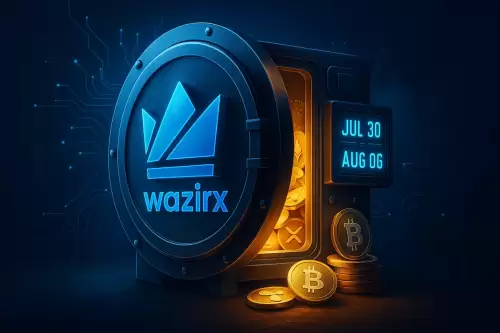 |
|
 |
|
 |
|
 |
|
 |
|
 |
|
 |
|
 |
|
 |
|
 |
|
 |
|
 |
|
 |
|
 |
|
 |
|
Cryptocurrency has become incredibly popular over the past few years, and as a result, the decentralized finance (DeFi) space has also exploded in popularity.

Cryptocurrency has become incredibly popular over the past few years, and as a result, the decentralized finance (DeFi) space has also exploded in popularity. Fueling this explosion in a major way is the DeFi core principle of removing intermediaries and empowering individual users to borrow, lend, trade, and even earn yields directly on blockchain networks.
However, to access these protocols and the DeFi platforms that power them, you’ll need a safe and reliable DeFi wallet. This is a specialized tool that connects you to smart contracts. That might sound complicated, but we’ll make sure it’s easy to digest. You’ll get the answer to “What is a defi wallet?” and learn how they manage your crypto assets.
What is a DeFi Wallet?
A DeFi wallet is a self-custody wallet, whether software or hardware, that stores your private keys and acts as a Web3 provider in compatible applications. This differs from a custodial wallet or exchange wallet, since a DeFi wallet app gives you complete control over your keys, so you are the only person who can authorize or deny transactions connected to that wallet.
Most of these wallets operate as a simple browser extension (one of the most popular being Metamask), mobile apps like Coinbase Wallet, and hardware wallets like Ledger and Trezor.
When you visit a DeFi platform or interact with decentralized applications within the DeFi ecosystem, like a lending protocol, decentralized exchange, or yield farm, your wallet will prompt you to review and sign (authorize) transactions directly on-chain. This direct, instant connection to smart contracts allows you to move assets quickly, providing liquidity and earning rewards without being dependent on centralized intermediaries.
How Does a DeFi Wallet Work?
A DeFi wallet app works more or less the same way as any other crypto wallet. It manages a pair of cryptographic “keys”, your public key, which is your wallet address, and your private key, which is your signature authority.
When you initiate or interact with a DeFi app that acts like swapping, the wallet creates a transaction payload and then prompts you to sign it with your key. This is typically just a single click or a tap, making it incredibly easy, but also introducing some risks.
This signature is the blockchain proof that you own the transaction and that it’s authorized, without having to disclose your private keys. The wallet then broadcasts authorized transactions to the network, where nodes then validate it and execute the corresponding smart contract.
Once the transaction is verified, the wallet then updates your balances and position. Beneath this process is a massive array of Web3 libraries and providers that help bridge your wallet to DeFi applications.
Source: WonderFi
What is a DeFi Wallet Used for?
A DeFi wallet is used to interact with smart contracts and decentralized protocols on a blockchain. It allows users to manage their crypto assets, authorize transactions, and participate in various DeFi services.
Here are some of the main uses of a DeFi wallet:
Connecting to Decentralized Applications (DApps)
Decentralized applications, also known as DApps, are software programs that run on a decentralized network, such as a blockchain. They offer a wide range of financial services, including trading, lending, borrowing, yield farming, and more. To access these DApps, you need a DeFi wallet that can connect to the respective blockchain network and interact with the smart contracts powering the DApps.
For example, if you want to use a decentralized exchange (DEX) like Uniswap or SushiSwap to swap tokens, you’ll need a DeFi wallet to authorize the transaction and interact with the DEX’s smart contract. Similarly, if you want to lend or borrow cryptocurrency on a protocol like Aave or Compound, your DeFi wallet will be used to deposit or withdraw funds and manage your lending/borrowing positions.
Storing Private Keys and Securing Assets
Crucially, a DeFi wallet is a self-custody wallet, meaning that you maintain complete control over your private keys. These keys are used to generate your public address, which is like your account number at a bank.
In contrast, centralized exchanges or custodial wallets hold your private keys on your behalf, making them vulnerable to theft or fraud. When you use a DeFi wallet, you are the sole authorized party for any transactions outgoing from that wallet balance.
This level of security is paramount in the decentralized finance space, where scams and exploits are unfortunately prevalent. A hardware wallet, like Ledger Nano S Plus or Trezor Model One, provides an additional layer of security by storing your private keys on a physical device that is not connected to the internet.
This makes it nearly impossible for hackers to steal your funds, even if they gain access to your computer or mobile device.
Types of DeFi Wallets
Software wallets
Software wallets store your private keys locally on a connected device, giving you instant access to DeFi protocols.
Source: Metamask.io
Hardware wallets
Hardware wallets like the Ledger Nano S Plus and Trezor Model One store private keys in a tamper‑
Disclaimer:info@kdj.com
The information provided is not trading advice. kdj.com does not assume any responsibility for any investments made based on the information provided in this article. Cryptocurrencies are highly volatile and it is highly recommended that you invest with caution after thorough research!
If you believe that the content used on this website infringes your copyright, please contact us immediately (info@kdj.com) and we will delete it promptly.






























































